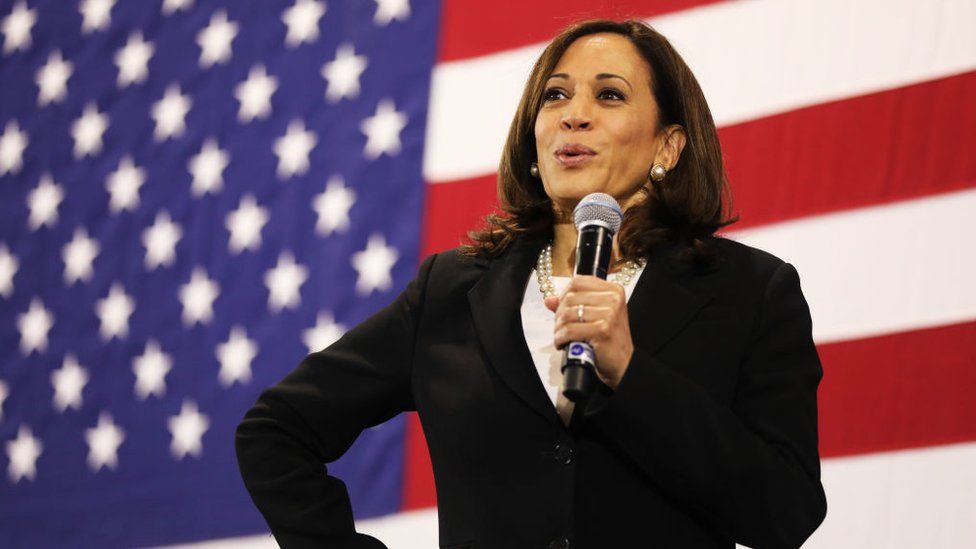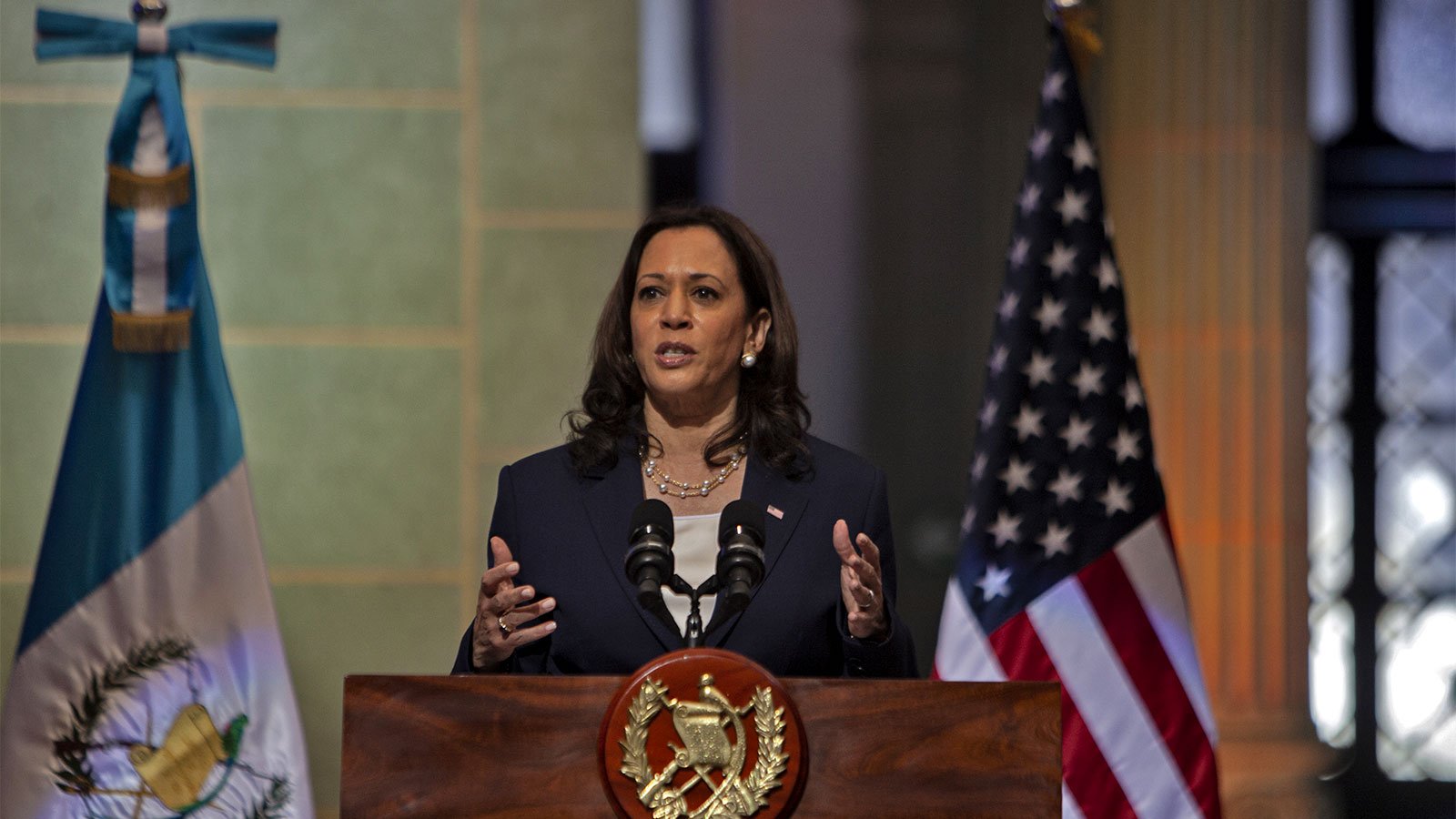Kamala Harris recently embarked on her first foreign trip to Guatemala and Mexico since she assumed the office of the Vice- President of the United States of America, earlier this year. Addressing a press conference in Guatemala, Harris made a controversial statement about the status of immigrants approaching the US border. Harris told the Guatemalans “do not come” to the border as the U.S Border Patrol would send the illegal migrants back.
The much anticipated trip was already brewing with political undercurrents as the U.S witnessed a staggering 1,78,000 migrants approaching the border in April 2021, the highest month total in over two decades. Harris also urged the migrants to ‘find hope and resilience at home‘ instead of commencing the ‘perilous journey‘ to the border.
“Do not come”: Dissecting Kamala Harris’s problematic remark
Apart from the comment towards migrants, Kamala Harris also ensured to address the steps the Biden administration would be taking to tackle the root cause of the problems faced by immigrants which forces them to migrate towards the Southern Border of the U.S and seek asylum.
She identified causes such as poverty, crime, corruption, hunger, diseases and most definitely the anxiety caused due to the raging global pandemic. Although the Guatemalan President Alejandro Giammattei assured he is dealing with the larger problem of drug trafficking, Harris stressed the need for joint efforts to further alleviate the citizens of Guatemala of their existing discomforts which force them to migrate.
Harris’s recent remark initiated intense debate about human rights and the legality of the policies the U.S government follows pertaining to the status of immigrants. In this context, we must bear in mind that the influx in the number of migrations occurred as a desperate attempt to escape a low income index and quality of life
Kamala Harris, who was put in charge of the US-Mexico border dispute by the Biden administration, also streamlined her trip to Mexico to engage in issues like climate change, economic development and availability of food. She also stressed upon the joint efforts of her government along with the President of Mexico, Andres Manuel Lopez Obrador, to pacify migrations from Central America and focus on enhancing agriculture with US aid.

The border issue, however, is still one of the top concerns of the Biden-Harris administration. Both Biden and Harris, have not shied away from discussing the status of the immigrants vis a vis human rights. Harris had previously signed a letter with fellow Democrats sharply criticising the border policy of the then president, Donald Trump and accusing the administration of “misinterpreting its limited authority” by turning their back towards the incoming asylum seekers. It is necessary to invoke Harris’ comments as a Senator and a candidate for the Vice President then.
Also read: Kamala Harris, The Complexity Of Her Identity And How It Plays Into The Upper-Caste Hindu Narrative
Harris’s recent remark initiated intense debate about human rights and the legality of the policies the US government follows pertaining to the status of immigrants. Many argued about the repercussions of the comment about illegal migrations. In this context, we must bear in mind that the influx in the number of migrations occurred as a desperate attempt to escape a low index and quality of life. We must start focusing on providing more paths to migrants to ensure the legal processes are more transparent for their safety and security.
Promise unreflected in practice: The Biden-Harris Immigration Policy
During the election campaigns conducted last year, the Biden-Harris team promised the US citizens that their approach and policies towards immigrants would be a stark contrast to the xenophobic policies of Trump. Six months into the presidency, Biden focused on righting the myriad wrongs done by his predecessor. This included measures taken to acknowledge and formulate policies to engage with the climate crisis, a more humanitarian approach towards adeptly handling the pandemic, and the administration of vaccines.
One area which requires more talk and immediate action is the US policy towards immigrants. While campaigning, Biden-Harris focused on restoring humanity to the rule of law by modernising immigration system, welcoming refugees into the country and reasserting their commitment to the asylum seekers.
U.S REPRESENTATIVE Alexandria Ocasio-Cortez tweeted that seeking refuge was completely legal and she also pointed to the U.S’s role in destabilisation in the countries from where people are looking to migrate. Additionally, many human rights groups and organisations working towards better treatment of refugees and asylum seekers also expressed disappointment at the Vice-President’s comment
However, the issue of immigration policies is still hot water for the Biden-Harris administration. They continue to implement the Title 42 policy despite the efforts of healthcare experts to denounce and lift restrictions. Title 42 is a section of the Public Health Service Act of 1944 which grants the Center for Disease Control and Prevention (CDC) the power to implement public health policies at the border to prevent transfer of diseases, especially in wake of the Covid-19 pandemic. This was previously used to stop asylum seeking individuals especially from Mexico and Canada citing public health measures. Experts have debunked the link of this measure to science.

Title 42 is also used to stop people from entering the US, as well as to not give them the opportunity to make their case for asylum, as is required by international law. The CDC and Border Patrol have permission to stop individuals from entering the borders but they do not possess the power to expel people back to their native lands. Therefore, it is crucial, now more than ever, to adhere to the advice given by health experts regarding border concerns.
Disappointing and deterring: Kamala Harris draws widespread criticism
Following the problematic press conference where Kamal Harris made this remark, many mixed emotions emerged. Many Democratic Party Representatives condemned Harris’ statement. US Representative Alexandria Ocasio-Cortez tweeted that seeking refuge was completely legal and she also pointed to the US’s role in destabilisation in the countries from where people are looking to migrate. Additionally, many human rights groups and organisations working towards better treatment of refugees and asylum seekers also expressed disappointment at the Vice-President’s comment.
Congresswoman Rashida Tlaib expressed how the stay there and die approach is harmful for the cultural and historical ethos of the USA.
Meanwhile, Kamala Harris, when approached about the criticism against her remark responded, “I am really clear: we have to deal with the root causes and that is my hope. Period.”
Also read: Kamala Harris Isn’t The South Asian Feminist Role Model We Want
The ways to move forward and integrate Latin American countries is through talks and policies facilitating the people to have a safe space to live. Though Harris’ visit and acknowledgement of the fundamental problems in these regions is a positive step in strengthening the relations with the South, so much more work needs to be done in terms of adopting policies that are sensitive to the concerns of the marginalised.
Featured Image Source: Grist
About the author(s)
Srishti is a first year Masters student in Gender Studies at AUD. She is passionate about reading and chasing after dogs. You will often find her recommending ASMR videos to people.




